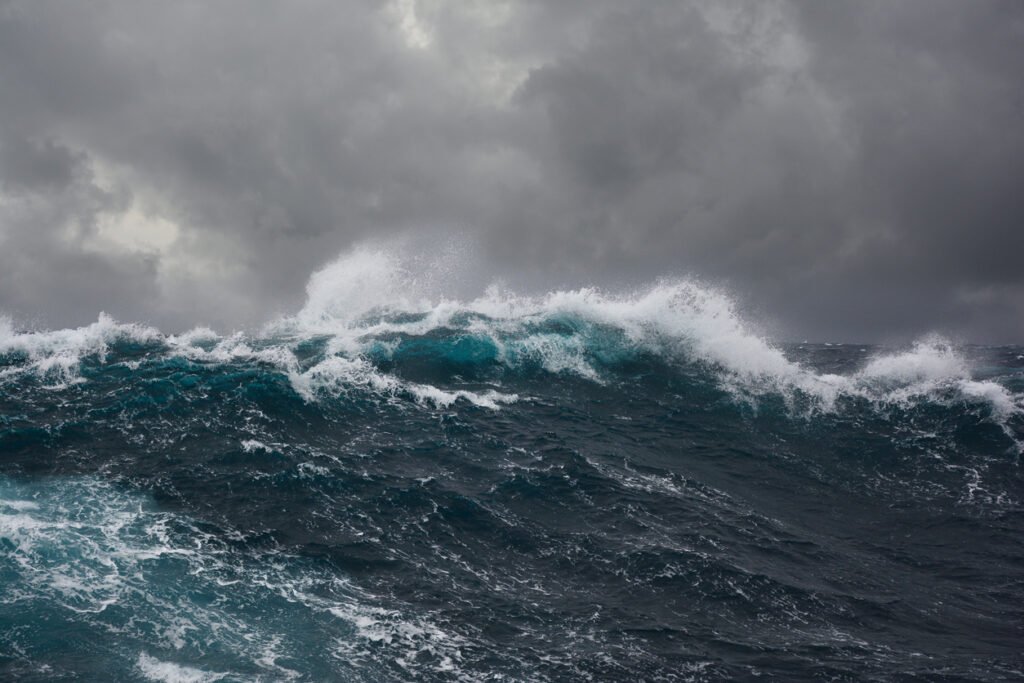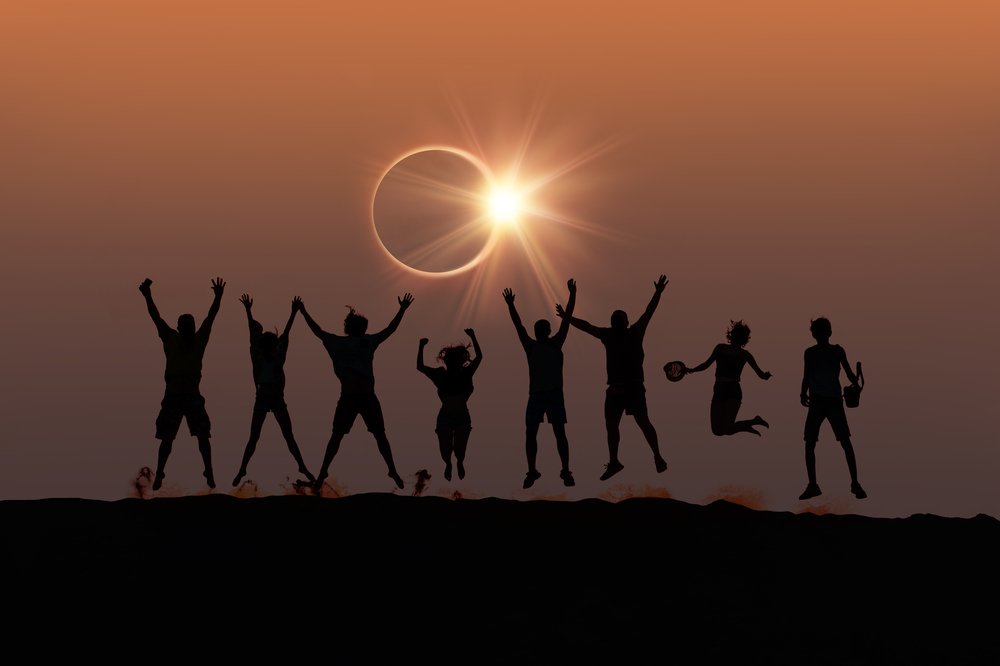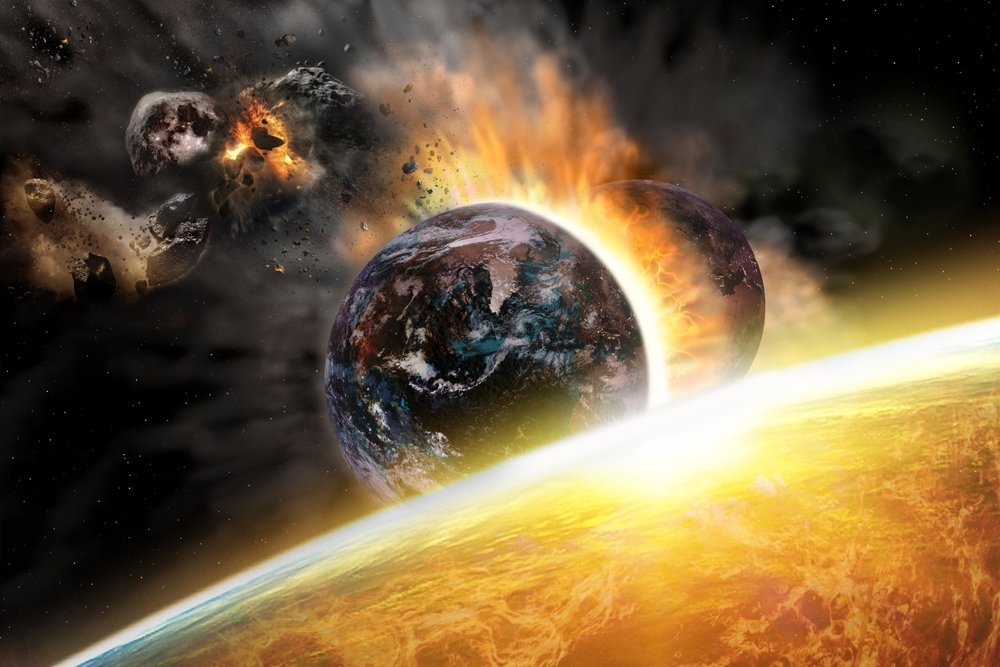Ocean Tides Would Collapse into Chaos

One of the moon’s biggest jobs is pulling on Earth’s oceans. Its gravity creates tides by tugging the water slightly as Earth rotates. Without the moon, that daily rhythm would fall apart. Tides wouldn’t disappear completely, the sun also has a gravitational effect but they’d be far weaker and far less predictable.
Marine scientists say this change could have devastating consequences for coastal ecosystems. Tidal cycles help stir nutrients, move sediment, and regulate breeding patterns for countless sea creatures. A sudden drop in tidal activity would disrupt food chains, impact fishing industries, and potentially collapse delicate marine habitats that rely on the ocean’s natural push and pull. It’s not just about beach waves, it’s a deep, complex system that life has adapted to over millions of years. Remove the moon, and that system unravels fast.
Earth’s Tilt Would Go Wild
Right now, Earth tilts at a fairly steady angle, about 23.5 degrees. That tilt is what gives us seasons. The moon helps keep that tilt stable by acting like a gravitational anchor. Without it, Earth’s tilt could wobble wildly over long periods of time.
Astronomers believe that without the moon’s steadying presence, Earth’s axis could shift anywhere from 0 to 85 degrees over millions of years. That means parts of the planet could experience extreme swings — freezing darkness for years, followed by scorching summers. It would be like turning the planet into a slow-moving roulette wheel of climate chaos. This kind of instability could threaten agriculture, biodiversity, and even civilization itself. The moon’s quiet pull may be the reason Earth has been so reliably habitable for so long.
Nights Would Be Much Darker
It may seem obvious, but the absence of the moon would turn our night skies into something unfamiliar. Moonlight reflects sunlight and bathes the night in a soft, silver glow. Without it, our nights would be ink-black, lit only by stars and distant planets.
For thousands of years, humans have used moonlight to navigate, track time, and stay safe. Entire species, from moths to turtles to nocturnal predators, rely on that light for their survival habits. If the moon disappeared, many animals would struggle to adapt. Predators might lose their edge. Prey might become disoriented. And for humans, especially before electricity, the change would’ve made life far more dangerous after sunset. Even with our modern lights, there’s something emotionally unsettling about a sky without a moon — it would feel as though something ancient and comforting had been quietly erased.
Wildlife Would Lose Their Lunar Clock
The moon is more than just a light in the sky. For many animals, it’s a biological clock. Creatures from coral to wolves use the moon’s cycle to guide their mating, feeding, and migration habits. Coral reefs, for example, coordinate their spawning events with full moons, releasing eggs and sperm in synchronized bursts.
If the moon vanished, these ancient rhythms would be thrown off completely. Animal behaviors built over millions of years could collapse or malfunction. Some species might adapt, but others could face population crashes or even extinction. Ecologists believe that the disappearance of the moon would ripple through ecosystems in ways we’re only beginning to understand. The moon isn’t just part of the scenery. It’s part of the code of life, quietly keeping time across the planet.
Earth’s Rotation Would Speed Up
The moon exerts a braking force on Earth through tidal friction, it’s been slowly slowing down our planet’s rotation over billions of years. If the moon vanished, that braking effect would disappear too. Earth would gradually start to spin faster.
That means shorter days. Right now, a day is 24 hours because of this delicate balance. Without the moon, days could eventually shorten to 18 hours or less over many millions of years. While that doesn’t sound like much, it would affect everything from sleep cycles to weather patterns to plant growth. A faster-spinning Earth might also produce stronger winds and more extreme weather. It’s another subtle but profound way the moon helps shape the rhythm of life on our planet — and without it, those rhythms would speed out of sync.
Our View of the Sky Would Lose Its Most Familiar Face
The moon is more than just a scientific tool or gravitational partner — it’s an emotional presence. Poets write about it. Cultures celebrate it. Children gaze at it in wonder. Take the moon away, and the night sky would feel empty.
Astrophysicists acknowledge that while many of the moon’s functions are physical, its cultural and psychological impact runs deep. It’s been used for calendars, farming cycles, spiritual rituals, and storytelling across every continent and age. Losing the moon would be like losing a collective memory, a guiding light, a shared symbol. Our understanding of time, nature, and even ourselves would subtly shift. The night would no longer be just darker — it would be lonelier.
Solar Eclipses Would Be Gone Forever

Solar eclipses are one of the most awe-inspiring natural events we can witness. They happen when the moon passes directly between the Earth and the sun, casting a shadow and briefly turning day into night. But without the moon, that alignment would be impossible. Eclipses as we know them would vanish entirely.
This wouldn’t change the sun’s behavior or Earth’s orbit, but the emotional and cultural impact would be huge. Eclipses have shaped mythology, driven scientific discovery, and captivated humans for centuries. They’ve helped us prove the theory of relativity, understand the sun’s atmosphere, and bring people together in moments of cosmic awe. If the moon disappeared, we’d lose not just a spectacle, but a profound reminder of our place in the universe — those fleeting seconds when the sky itself changes and leaves us breathless.
Earth’s Weather Might Spiral into New Patterns
The moon doesn’t just affect tides — it may also influence our weather systems. By pulling on the oceans, the moon indirectly affects ocean currents, which help regulate Earth’s climate. Remove the moon, and those ocean currents could shift dramatically, triggering changes in wind patterns, rainfall, and temperatures.
Climatologists suggest that this kind of imbalance could make dry regions even drier and storm-prone areas more volatile. Some climate zones could vanish while others emerge. And since Earth’s tilt might also begin to wobble without the moon, seasonal patterns could shift unpredictably. In short, weather would become less stable and harder to forecast. A moonless Earth might still support life, but it would be a far more chaotic and unpredictable world than the one we know today.
Earth’s Magnetic Field Could Weaken Over Time
The moon may also play a subtle role in the behavior of Earth’s core. While it doesn’t generate our magnetic field directly, its gravitational tug could help stir the molten iron within Earth, which in turn powers the magnetic field that shields us from cosmic radiation.
Some geophysicists believe that without the moon’s steady pull, the churning of the core might gradually slow down. If that happens, Earth’s magnetic field could weaken over time. A weaker field means more solar and cosmic radiation reaching the surface — increasing cancer risks, disrupting satellites, and threatening electric grids. It’s a long-term risk, but one that reminds us how connected everything is. Even a distant moon helps maintain the invisible shield that protects life on Earth.
The Moon Helps Balance Earth’s Energy
The moon reflects sunlight back into space, subtly helping to balance the planet’s energy. Without it, more sunlight would be absorbed by Earth’s surface and atmosphere, potentially nudging the planet’s energy balance in ways we haven’t fully modeled.
While this effect might seem minor, climate scientists note that even small changes in energy flow can add up over time. It could impact polar ice melt, cloud formation, or even contribute to slight long-term warming. The moon’s reflectivity — or albedo — isn’t dramatic, but it’s another quiet way the moon helps Earth maintain its delicate balance. Without it, we’d have one less regulator in a climate system already stretched thin.
The Night Sky Would Look Completely Different
Take away the moon, and stargazing becomes a different experience. While the sky would be darker — which might help with seeing distant galaxies — we’d lose the centerpiece of the night. Many constellations and celestial events use the moon as a reference point. Astronomy as a hobby and science would feel emptier.
For millennia, people have used the moon to track time, tell stories, and find their way. Without it, constellations wouldn’t change, but the overall structure of the sky would feel different. The moon acts like a familiar face in the cosmos — always present, always changing, yet always grounding. Without that bright, comforting anchor, even a star-filled sky could seem strangely incomplete.
Life on Earth Might Never Have Evolved the Same Way

Perhaps the biggest consequence of a missing moon isn’t what would happen but what might never have happened at all. Many scientists believe the moon’s stabilizing influence made Earth a uniquely life-friendly planet. Its control over tides, seasons, and tilt may have provided the long-term consistency life needed to emerge and evolve.
Without the moon, Earth might have been too chaotic, too unpredictable, or too harsh for complex life to take hold. That means you, me, and every living thing we know might not be here if the moon hadn’t existed. Its role in life’s story is quiet but foundational — not flashy like the sun, not busy like the oceans, but steady, constant, and quietly essential. Losing the moon would be more than a change in the sky. It would be like erasing a chapter from the story of life itself.
